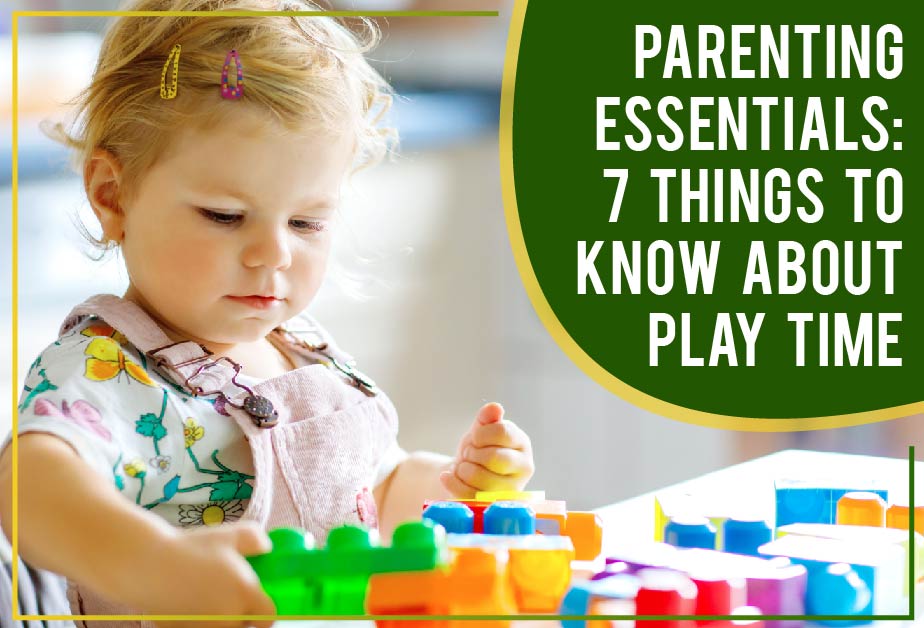Parenting Essentials: 7 Things to Know About Play Time
What makes play important for children? Why do we as parents need to ensure that kids are given ample playtime throughout childhood?
In order for children to grow and develop in a healthy way, play is vital. Play time is also a powerful tool parents can use to instill valuable life lessons. Aside from providing children with opportunities for fun, play also teaches them about themselves, the world around them, and how to manage their own behavior.
Play has been found to enhance physical, cognitive, emotional, and behavioral skills throughout childhood. Play also fosters the development of other essential life skills that kids will need as they grow into adulthood.
Why is play so important to children? What parents should know?
Play promotes imagination and creativity
Children need to have time to explore and use their imaginations rather than always having to conform to structure and routine. Children should use their imaginations freely to create magical worlds in which they can become anyone and do anything. Play makes this possible.
Children who are given ample opportunities for free, imaginative play tend to have a greater capacity for creativity throughout their lives, as they have been observed to be more involved in activities related to art, music, drama, and writing.
Play provides opportunities for problem-solving and decision-making
As children play, they are able to practice making their own decisions. Therefore, playtime is a great opportunity to teach children to exercise free choice within limits. In addition, it's important for parents not to interfere with this process by offering solutions or answers. Rather, parents should give their children the space they need to solve issues and dilemmas during playtime.
Allow kids to make mistakes so they can learn from them. In these moments, you can also help children understand how their actions or decisions may have negatively impacted others.
Kids get more exercise through play
Children need physical activity to grow and develop. Limit screen time instead of letting children spend hours on screens. Rather, let them play outside and run around.
As an example for your children, you should also be active yourself. If possible, try to space out your work hours, get away from the office or whatever it is you do in front of a computer or other gadgets, and take part in outdoor activities with your children, and have fun while bonding!
Through play, kids develop social skills
Communication skills are practiced when kids play with others. Kids can learn how to deal with bullying and peer pressure in the playground. As they get older, their social skills will improve.
Play helps children manage their emotions and behavior
Children's play reduces stress, anxiety, and depression. Acting out different roles gives them a healthy way to release their emotions. Children can also learn through play why certain behaviors or actions are acceptable. The playtime environment allows them to experiment with different personas without much risk of real-world consequences, so they can expand their emotional horizons.
Early play improves cognitive development
Children can exercise their creativity and imagination through free play. Parents should encourage free playtime instead of screen time during this crucial developmental stage. As a result, kids will be more willing to ask questions when they have them. Kids who exhibit this type of curiosity may gain new ideas and experiences that wouldn't otherwise be gained by watching TV for hours on end.
Play time is an essential component for all children's holistic and healthy development. Here at Mrs. Myers' Learning Lab, we recognize the value of play when it comes to learning and development. Our innovative small group programs are framed around children's natural high energy and individual interests, technology, music, and games. Your child will engage in reading and learning activities that feel like playing! Learning this way expedites results. Find out more on our website!





